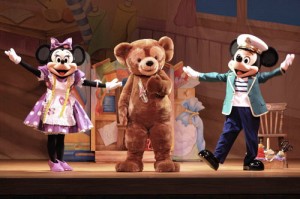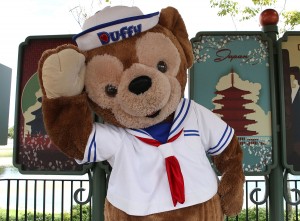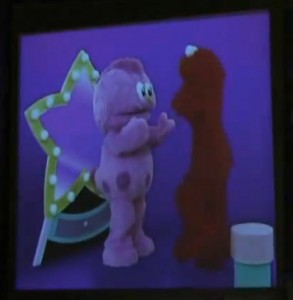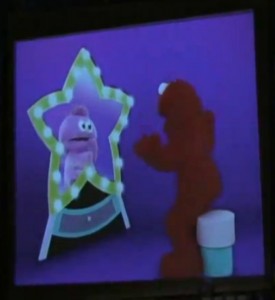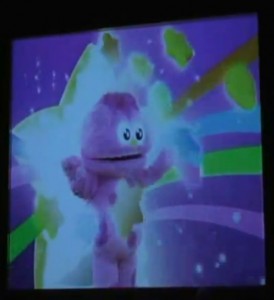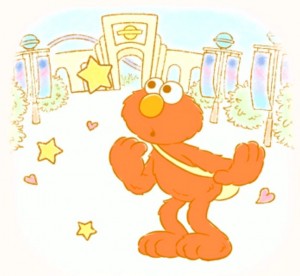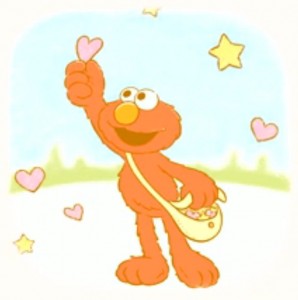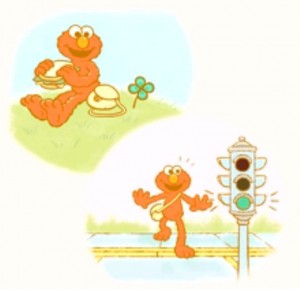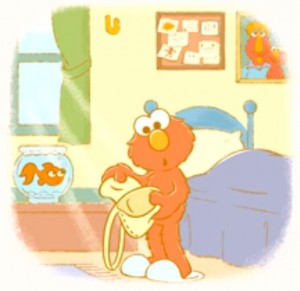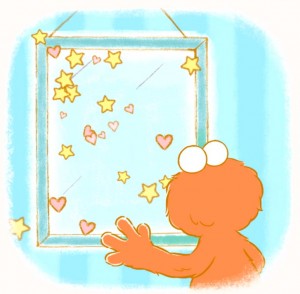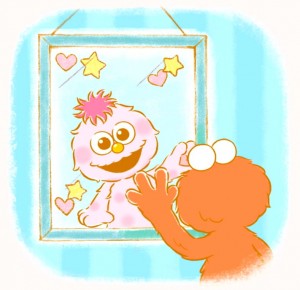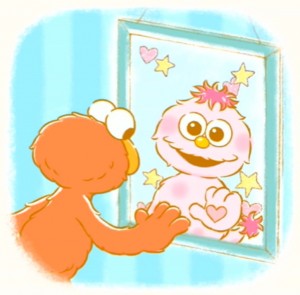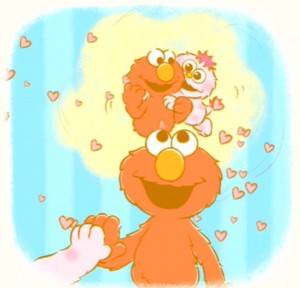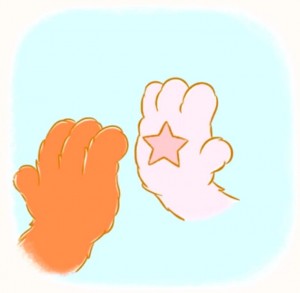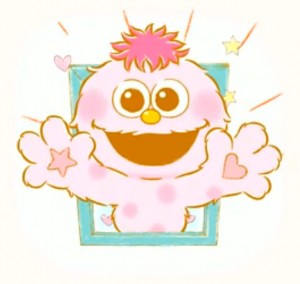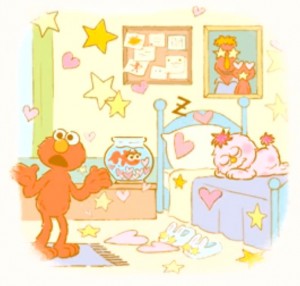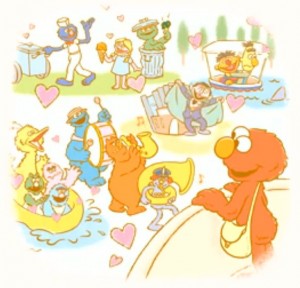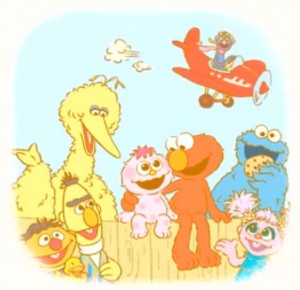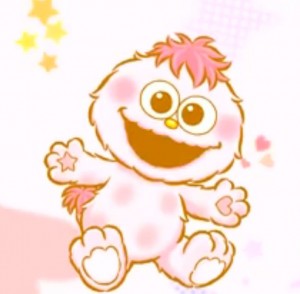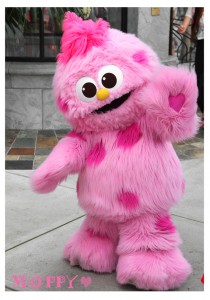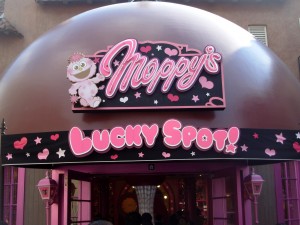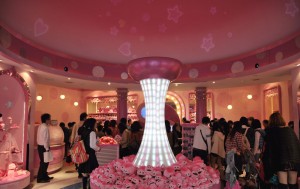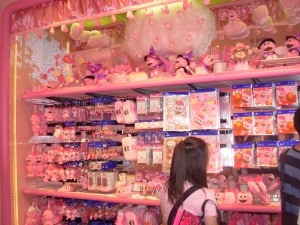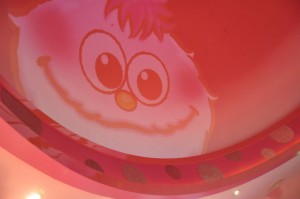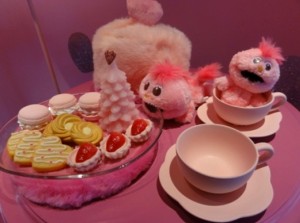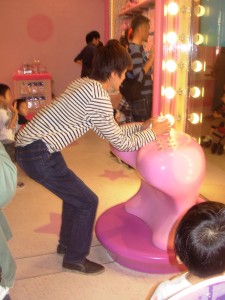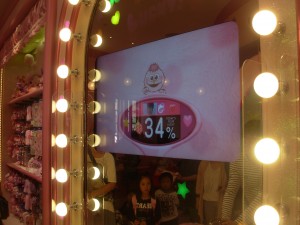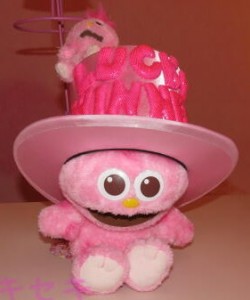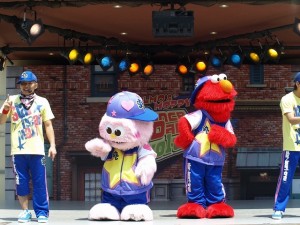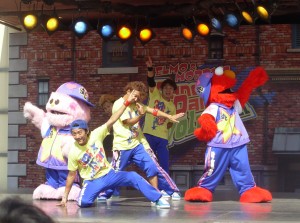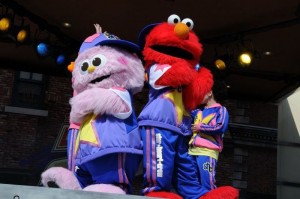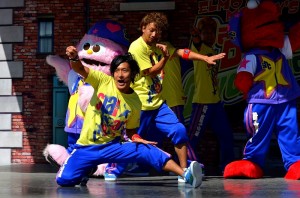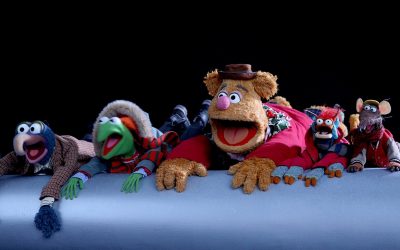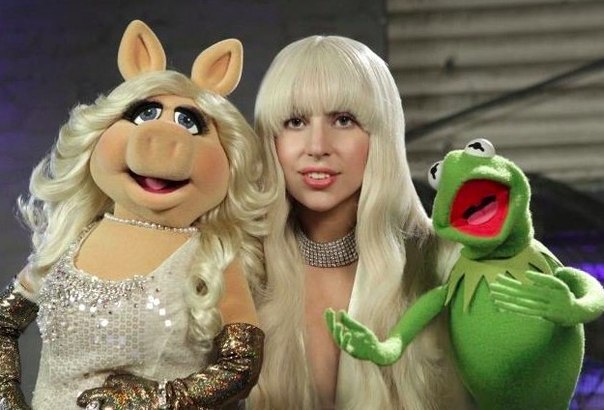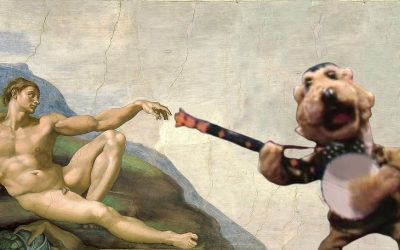Part 1: Welcome to Noisy Island
Part 2: Mostly About Popcorn
Part 3: 4-D Years of Life on the Street
Part 4: What is the Deal with Moppy?
Part 5: It’s a Fun World
Actually, before we talk about Moppy, we need to talk about Duffy.
The story starts in 2002, when Walt Disney World designed an exclusive “Disney Bear” plush toy as a promotion for a new toy store opening in the Downtown Disney shopping district. The markings on the teddy bear’s face echo Mickey’s mouse-ears silhouette, and it had “hidden Mickeys” on its hip and on the bottom of its paws. Disney tried to make the bear into a collectible item by producing lots of variants in different colors, but nobody really got into it, and by 2004, the bear was on its way out.
That’s when some Japanese people got involved. The marketers from the Tokyo DisneySea park saw promise in the Disney Bear, and they included it in their Christmas 2004 merchandising program. Now, do you remember what I said earlier about Tokyo and fads and plush dangly things? The bear was new, and cute, and collectible. People went nuts for it.
By Christmas 2005, the bear was named “Duffy, the Bear of Happiness and Luck“, and they gave Duffy a new backstory that connected directly to Mickey and Minnie, the two most popular characters in Japan. According to the retcon, Mickey was planning a long sea voyage, and Minnie sewed him a special teddy bear to bring him luck on the trip. Mickey named the bear “Duffy”, because it was hidden in his duffle bag. Mickey loved the bear, and hugged it so much that his silhouette was impressed onto the bear’s face.
And then, apparently, at some point the bear came to life, and now he wanders around the theme park in a sailor suit so people can take pictures with him and then buy a million little plush mascots.
P.S. It worked. Duffy was a huge hit, and in the last couple years he’s started showing up in America, at the theme parks and Disney Stores.
Happy Surprise!
Okay, back to Universal Studios Japan, where obviously they’re incredibly jealous that Tokyo DisneySea created a new collectible plush character sensation just by telling everybody that he’s friends with Mickey Mouse. So in March 2011, for USJ’s tenth anniversary, they created a show called “Happy Surprise!”, which introduced a special new friend for Elmo.
His name is Moppy. He’s a pink monster with pink polka dots; he’s got pink hair and a pink tail, and in general the guy gives off kind of a pink vibe. On the palm of his left hand, he has a heart symbol, indicating love and happiness, and on the palm of his right hand, he has a star symbol, indicating surprise and luck. He has enormous eyes and he brings Happiness and Luck, so he’s just like Duffy, except that he’s magical and he came out of a mirror and he’s pink.
The most coherent version of Moppy’s backstory that I found is in a little video from the Elmo & Moppy page on the USJ website. Here’s how it goes.
One day, Elmo is walking around at Universal Studios Japan. (You can see the USJ entrance gates in this first scene.) He notices little hearts and stars floating around, so he collects them in his bag.
Carrying all the lucky symbols around, Elmo discovers that he has good luck for the rest of the day. When he comes to a street corner, the traffic light turns green just as he approaches.
But that night, as Elmo is sleeping, the stars and hearts leak out of the bag and drift away.
Elmo’s disappointed, but then he notices that the stars and hearts have collected around his mirror. As he investigates, the symbols take the shape of a pink monster named Moppy.
Moppy reaches out with his left hand, which has a heart symbol on it. Elmo touches his hand to the mirror, and that means that they love each other.
Moppy reaches out with his right hand, which has a star symbol. Elmo touches his hand to the mirror, which releases Moppy, and invites him into our world.
Moppy makes himself comfortable in Elmo’s bedroom, and the love and luck that he emits brings happiness to everyone on Sesame Street.
All of Elmo’s friends come to love Moppy, and they welcome him into the family. And now Moppy is here, and he’s in your life, and there’s nothing you can do about it.
Now, I think you’ll agree that that story is unbelievably creepy.
Moppy is clearly a demon from another dimension. He gains Elmo’s attention by showering him in arcane symbols that give him magical powers. Elmo brings the symbols into his home, which allows a manifestation to appear in the mirror. Elmo enacts a dark ritual, touching the pentagram-stigmata on the demon’s hand, and that draws it out of the mirror and unleashes it on the waking world.
Freed from plush toy limbo, the demon uses its diabolical charisma to become an object of worship. And that is the only way to understand what happens in that story.
Moppy’s Lucky Spot
Meanwhile, back in the world, the real story is that Moppy is a cynical creation of the USJ marketing department, who took a bunch of concepts that Japanese people respond to like “luck” and “magic”, designed a pink character with huge eyes, and then told everybody that he’s Elmo’s new best friend. And the really fiendish part is that they made their own version, instead of using Sesame Workshop’s magical pink character, who suddenly became Elmo’s best friend in 2006.
But, I have to admit — Moppy works. He’s obviously marketing-driven rather than a bold creative breakthrough, but he’s cute, and the guests at the park seem to genuinely love him. He looks like he belongs with the Sesame characters, and that’s an advantage over Duffy, who doesn’t look like a Disney character at all.
So six months after Moppy’s debut, USJ responded to the overwhelming public demand that they’d painstakingly generated, remodeling the Hollywood area’s Brown Derby hat store and turning it into Moppy’s Lucky Spot.
I know that I keep saying that everything was insane, but inside Moppy’s Lucky Spot it was seriously insane. Everything was bright pink, and decorated with clouds, stars and hearts.
There was a “light pillar” in the middle of the room that projected huge images of Moppy onto the domed ceiling, and there were little tea-set displays that I think were just there to be decorative. Obviously, the store was packed with schoolgirls.
The centerpiece of the store is the Lucky Mirror. You look in a mirror and rub a crystal ball, and Moppy gives you a percentage score based on how happy you look.
And because this is Japan, they determine your score using facial-recognition software. Seriously. I’m not kidding. According to a USJ press release that I read through Google Translate, “we introduce system measuring lucky degree by face recognition into shop! We measure lucky degree from expression of visitor, where copying complies with the best smile to the lucky mirror.”
The person who gets the highest luck score by 2pm each day gets to wear Moppy’s Lucky Hat, a bright pink top hat with “LUCKY WINNER” in huge pink letters. For the rest of the day, the lucky guest doesn’t have to wait on any lines.
Naturally, I didn’t actually understand the whole Lucky Mirror concept while I was there; I had to look it up when I got home. At the time, I figured this was just another noisy colorful thing that Japanese people get over-excited about, which I guess technically it is.
Dance Dance Evolution
But talk about lucky, we walked around the corner, and there was a performance of “Elmo & Moppy’s Dance Dance Evolution”, a live outdoor stage show featuring Elmo, Moppy, and their posse of breakdancing friends.
The show lasts about 15 minutes; here’s a good video. It’s all in Japanese, but I don’t think you miss much, unless there’s a lot of complicated subtext going on. Four young guys dressed in yellow t-shirts and purple pants come on stage and do a break-dancing routine. They’re joined by Elmo and Moppy, dressed for action in track suits and sideways baseball caps. They all do a musical number introducing their group, which is named “S.H.C. Star Hearts Crew” in honor of Moppy’s lucky symbols.
You should really be watching that video right now, because around 3:05, Elmo and Moppy start rapping in Japanese, which is definitely worth a moment of your time.
From there, the story gets a little thin. They do a series of dance numbers, they milk the audience for applause, and the rest of the time they’re mostly just encouraging each other. There’s some amusing Muppet pop-and-lock action starting at 10:15, culminating in Moppy doing the robot at 11:10. There’s more Elmo rap around 13:00, and then they say goodbye.
And the weird thing is, I kind of fell in love with it.
I think if I’d seen this show at an American theme park, it would have been super irritating, because Elmo would be saying “word up”, and there’d be some kind of story about Moppy trying to dance for the first time. They’d bring kids up from the audience to help, and we’d have to shout “Go Moppy!” and the whole experience would be tedious and unbearable.
But at USJ, it’s okay to just have Elmo and Moppy dancing around for 15 minutes wearing track suits. No story, no audience participation. It’s more spectacle than show. So it was silly and fluffy, but it was really hard to hate.
And, honestly, I spent the whole day trying to hate Moppy, just for comedy value, and I couldn’t manage it. I should have been rolling my eyes at the Star Hearts Crew, and the rest of Moppy’s hot-pink marketing machine, but everybody was just so enthusiastic, on stage and in the audience. They were genuinely happy to be doing what they were doing. I could have stood there and grumbled, but the Star Hearts Crew would still be enjoying themselves. They won. Go Moppy.
Now, you might think that this would be enough Sesame-related craziness for a theme park on a small island, but as we’ve seen, in Japan there is no such thing as “enough”. There’s one more stop on the magical mystery tour: Sesame Street Fun World.
Click here to measure lucky degree from expression of visitor on the Tough Pigs forum!
by Danny Horn

